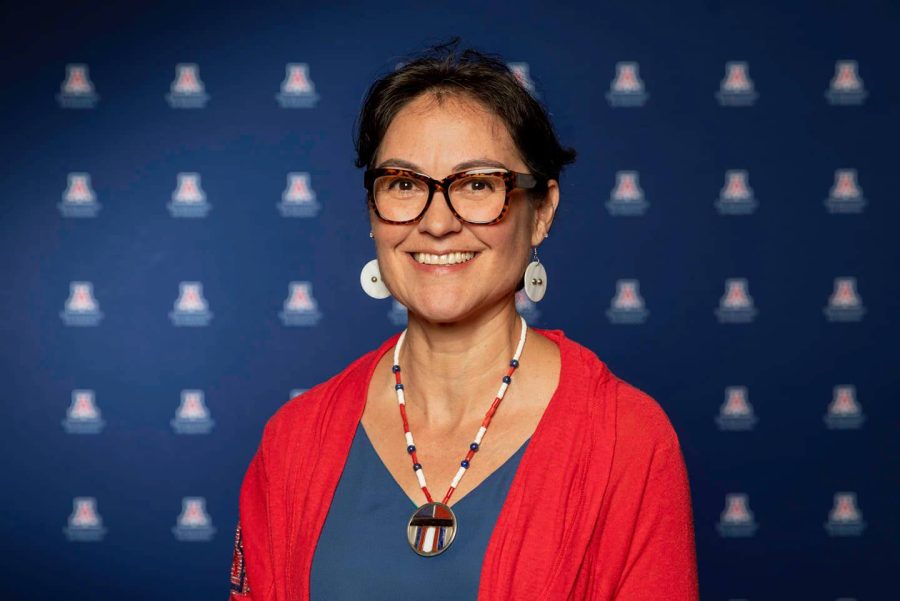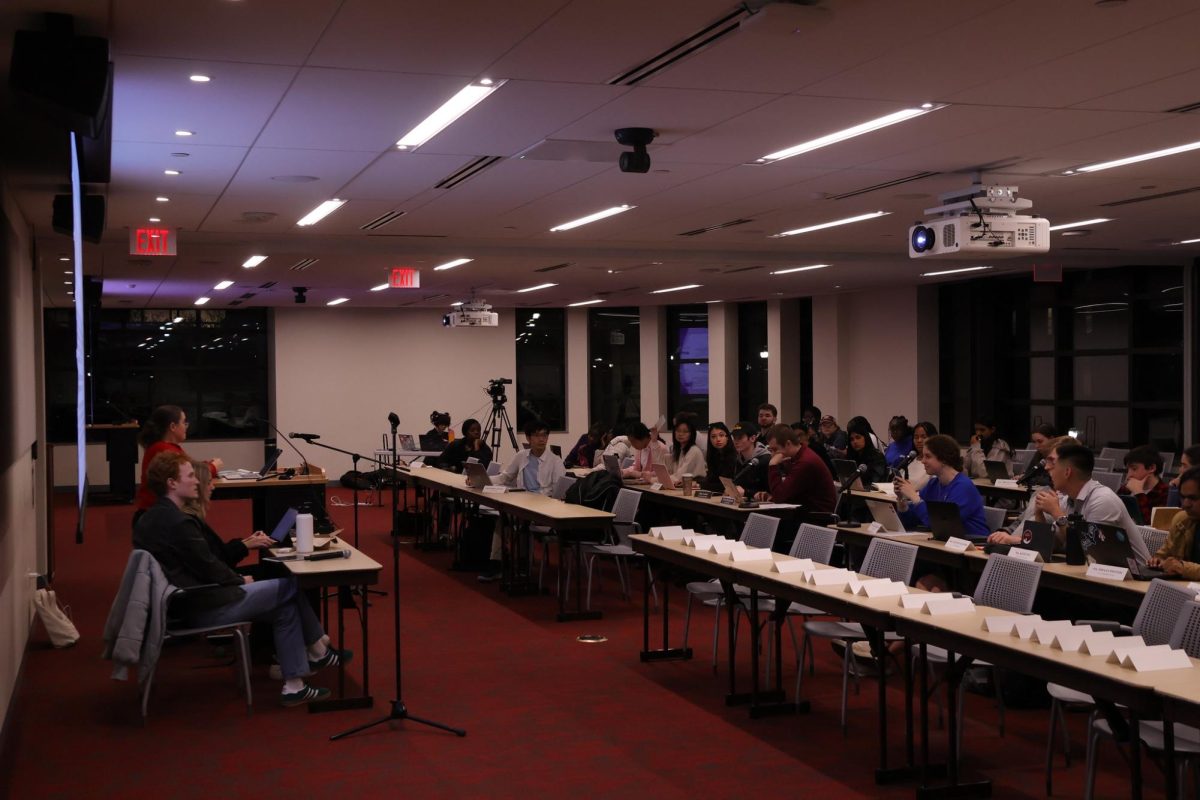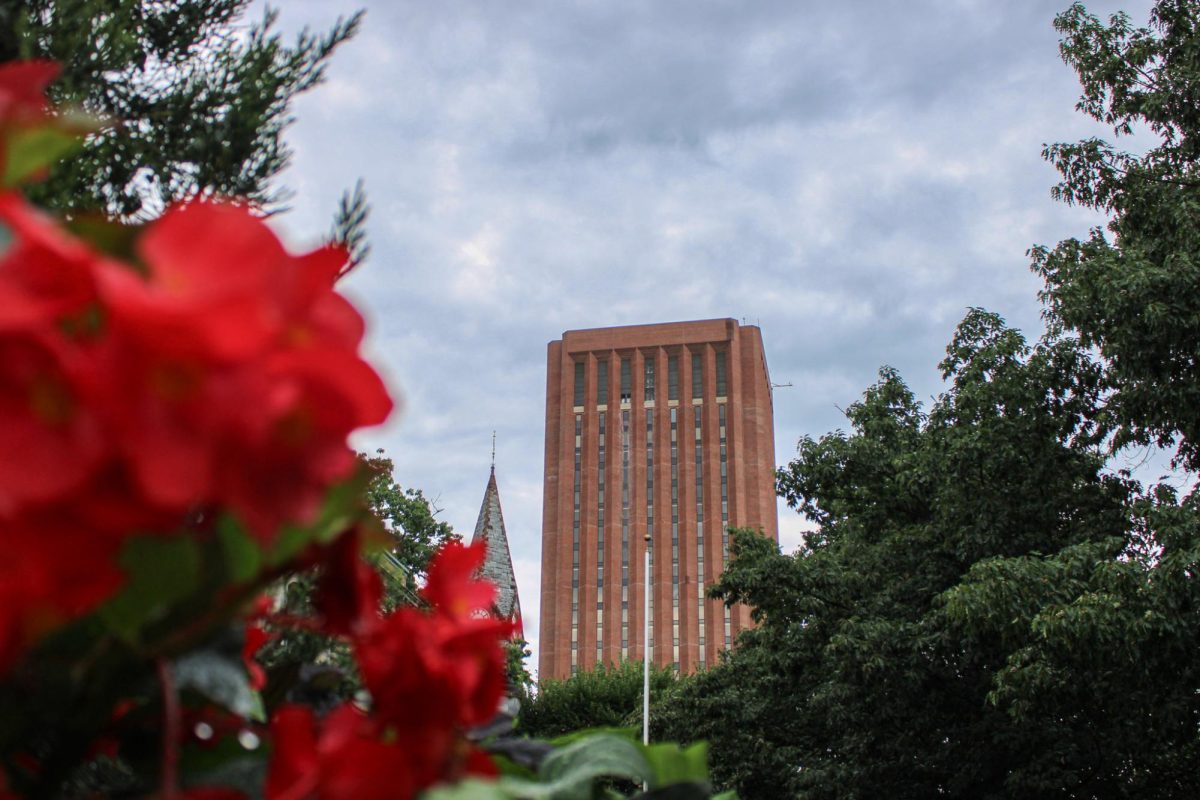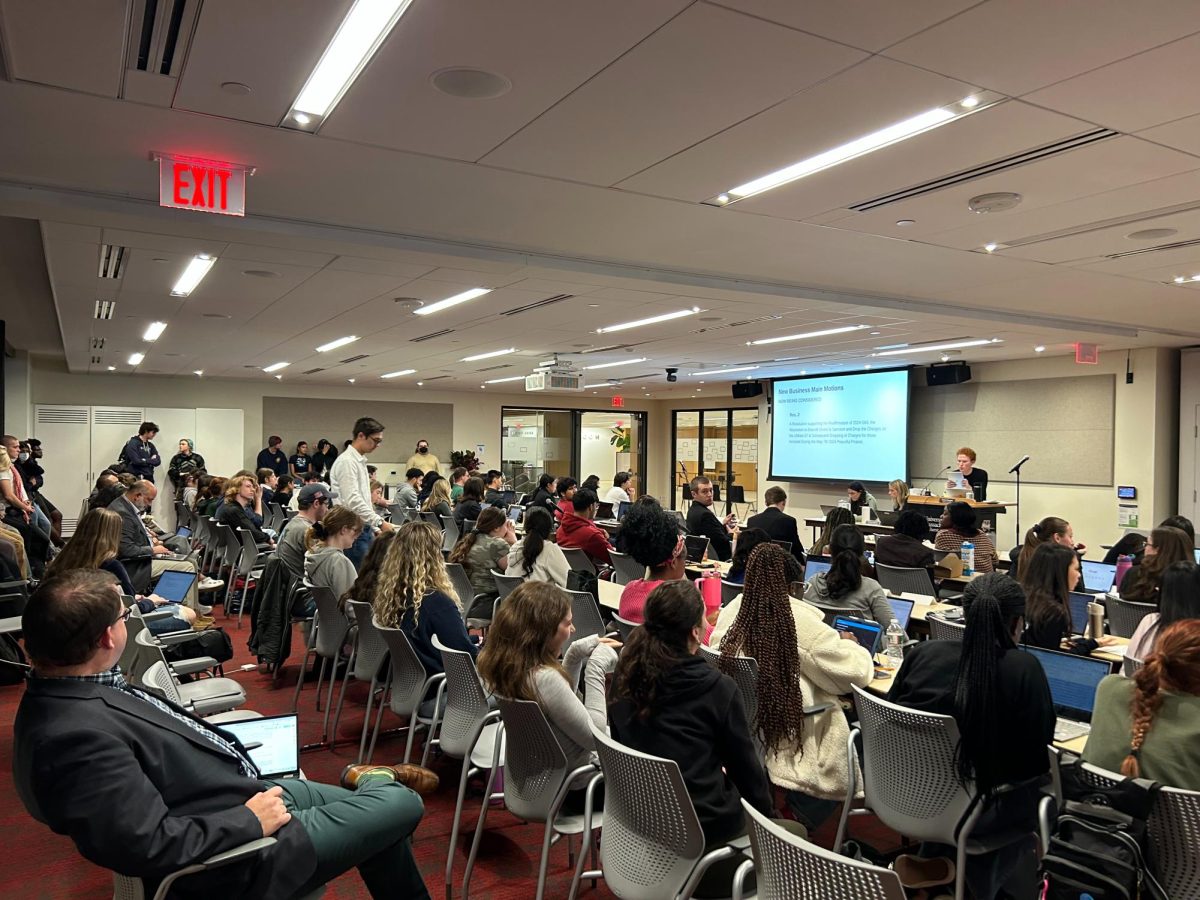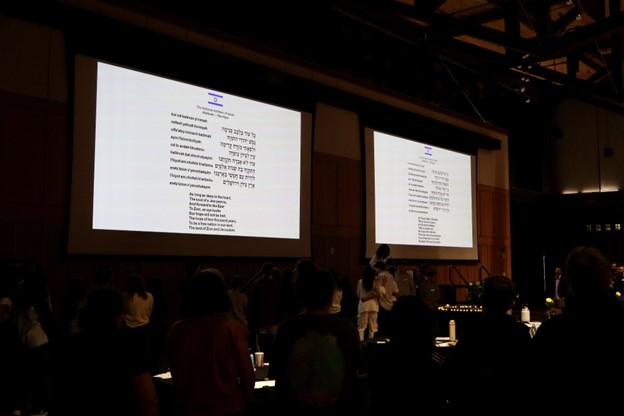Shelly C. Lowe, chair of the National Endowment for the Humanities, visited the University of Massachusetts on Friday to discuss the work of the NEH and reflect on her role as the “spokesperson for humanities.”
“We far too often do not define humanities in our daily life,” Lowe said. She pointed to the use of both stories and history to find “meaning and instruction.”
Lowe emphasized the importance of exploring a range of creation stories to better understand our own individual path forward. “The humanities are our creation stories,” she said. “I believe it’s our stories, it’s the humanities, that will guide us.”
Lowe discussed the struggles that she faced in finding her own path, often observing that identifying as a Native American made her undermine her knowledge and experiences in the humanities field. “I didn’t go to an ivy league institution, I didn’t go to elite prep schools, I grew up in a double-wide trailer in rural Arizona,” Lowe explained. As a result, Lowe found that she initially struggled with whether she was qualified to serve in the NEH.
The National Endowment for the Humanities is a federal agency that “serves and strengthens our republic by promoting excellence in the humanities and conveying the lessons of history to all Americans.” Founded in 1965, the NEH is “one of the largest funders of humanities programs” in the U.S. and has directly sponsored numerous projects including Ken Burns’ documentary on the Civil War and the United States Newspaper Project, which “cataloged and microfilmed 63.3 million pages of historic newspapers.” The endowment also helps support “some 56,000 lectures, discussions, exhibitions and other programs each year” in all 56 U.S. states and territories.
Lowe, a citizen of the Navajo Nation, grew up on a reservation in Ganado, Arizona before earning a bachelor’s of arts degree in sociology and a masters of arts in American Indian studies from the University of Arizona. She proceeded to serve as the graduate education program facilitator for the American Indian studies program at the University of Arizona, before becoming the director of the Native American Cultural Center and then assistant dean at Yale University. She also served as the executive director of the Harvard University Native American program.
Lowe realized that for her to forge her own path and better understand the humanities, she must look to her cultural foundations in the Navajo Nation and lean on her experiences as a Native American. “I realized that the humanities are what I do … Humanities teaching informs who I am,” she said.
In 2015, Lowe was appointed by former President Obama to serve as a member of the National Council on the Humanities, the advisory body of the National Endowment for the Humanities. In 2022, President Biden nominated her to serve as the chair of the NEH, becoming the first Native American to lead the agency.
Lowe highlighted the fundamental need for the humanities in a thriving democracy. She cited the NEH’s founding charter, the National Foundation on the Arts and the Humanities Act of 1965, which notes that “it is vital to democracy to honor and preserve its multicultural artistic heritage as well as support new ideas” by transmitting “the achievement and values of civilization from the past via the present to the future, and make widely available the greatest achievements of art.”
To better understand democracy and the world around us, Lowe reiterated the importance of grounding our work in our own experiences. Lowe explained that she often tells students, “When you feel discouraged, I want you to ask yourself, who are you doing this for?”
“I want you to use your work to tell the world who you are,” she added. “In a world of uncertainty … you and your work can help us remember and make a map of your own.”
For students, Lowe recommends that young people hold on to the stories that they are told in their youth to inform their path forward. She acknowledged the rise in STEM disciplines but reaffirmed the need for humanities to better inform the world around us in our daily lives. “Your work, whether it is data science or college access or health policy, is never about just you or what you can achieve,” she said. “It is about what we can achieve together.”
“It is about our shared stories, together we can succeed.”
Lowe finished her remarks by leaving the audience with the following questions: “Who would believe the story of your survival, of our survival collectively, and what story are you here to tell moving forward?”
Alex Genovese can be reached at [email protected]. Follow him on Twitter @alex_genovese1.

